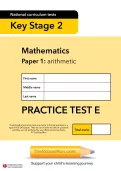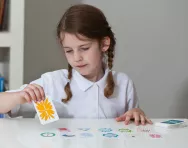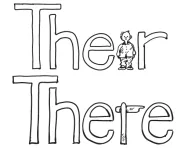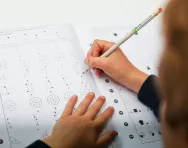Important update from TheSchoolRun
For the past 13 years, TheSchoolRun has been run by a small team of mums working from home, dedicated to providing quality educational resources to primary school parents. Unfortunately, rising supplier costs and falling revenue have made it impossible for us to continue operating, and we’ve had to make the difficult decision to close. The good news: We’ve arranged for another educational provider to take over many of our resources. These will be hosted on a new portal, where the content will be updated and expanded to support your child’s learning.
What this means for subscribers:
- Your subscription is still active, and for now, you can keep using the website as normal — just log in with your usual details to access all our articles and resources*.
- In a few months, all resources will move to the new portal. You’ll continue to have access there until your subscription ends. We’ll send you full details nearer the time.
- As a thank you for your support, we’ll also be sending you 16 primary school eBooks (worth £108.84) to download and keep.
A few changes to be aware of:
- The Learning Journey weekly email has ended, but your child’s plan will still be updated on your dashboard each Monday. Just log in to see the recommended worksheets.
- The 11+ weekly emails have now ended. We sent you all the remaining emails in the series at the end of March — please check your inbox (and spam folder) if you haven’t seen them. You can also follow the full programme here: 11+ Learning Journey.
If you have any questions, please contact us at [email protected]. Thank you for being part of our journey it’s been a privilege to support your family’s learning.
*If you need to reset your password, it will still work as usual. Please check your spam folder if the reset email doesn’t appear in your inbox.
12 ways to give memory skills a boost and prepare for SATs

1. Mnemonics
Memory aids such as acronyms and acrostics can be a really useful tool in remembering information, particularly in the case of lists or groups of facts: remember learning ‘Every nice boy deserves favour’ when learning to read music? Research shows that mnemonics are most helpful if they have a personal meaning, so encourage your child to get into the habit of thinking up their own keywords to help them retain groups of information.


Prepare your child for SATs today
- Your guide to SATs
- KS1 & KS2 SATs revision courses
- SATs practice papers in English & maths
2. Rote learning
Learning parrot-fashion may be considered old-school, but it’s a great way to embed information in the memory, particularly for times tables and other maths basics. Experts believe that rote learning is the key to a child being able to achieve automaticity, and reciting them out loud is particularly crucial.
3. Memory games
Light-hearted memory games such as Kim’s Game (where you lay out a selection of items, let your child study them for a minute, then remove one and ask them to identify what’s missing) and Shopping List (a group game where each person in turn says, ‘I went to the shops and I bought…’ and names an item of their choice, but also has to repeat their friends’ choices in order) will help to give your child’s brain a workout and build memory skills.
4. Attention grabbers
‘Curiosity increases attention and memory,’ says Dr Judy Willis, author of How your child learns best (£14.19, Sourcebooks), so make learning fun and attention-grabbing, for example by making posters about your child’s current topic, or acting out a story scene that they needs to commit to memory. ‘Memorable events make memories,’ Judy adds.
5. The loci method
A tried-and-tested memory technique to teach your child, the loci method involves him creating a journey in their mind, and visualising the things they need to remember at key points along the route. For example, they might picture their walk to school, and visualise one object at the end of the front path, one at the bus stop, another at the pedestrian crossing… When they need to recall the info, they mentally retrace their footsteps and should remember each item as they get to its location.
6. Puzzles
Number and maths puzzles such as code breakers, crosswords and hangman can help to improve your child’s working memory. This ability to hold information in our mind and manipulate it over a short period of time is crucial in many classroom and exam situations, including mental maths and spelling tests.
7. Chunking
It’s much easier to remember facts when they come in manageable packages, so encourage your child to break large amounts of information down into smaller chunks, rather than trying to commit a vast stash of data to memory all in one go.
8. De-stress
Creating a stress-free environment for your child will help to improve their memory. ‘Stress sends the brain into fight, flight or freeze mode, and prevents information flowing to the part of the brain where long-term memories are created,’ explains Judy. Try playing calming music while their working, letting them curl up on the sofa with their books rather than sitting at a desk, and giving lots of praise.
9. Colour
Many children are visual learners, and rely on visual cues to help cement facts in their memory. ‘Encourage your child to use coloured pens to emphasise the key information that they need to learn,’ suggests Judy. ‘Use green, orange and red in order of importance, like a traffic light.’
10. Summaries
If you have things to remember, chances are you automatically scribble down a few key words to help yourself, and the same technique could work for your child, too. ‘Writing summaries of new information in their own words helps children build permanent memories,’ Judy explains. ‘To make these more meaningful, the summaries can be in a format that suits their learning style, such as diagrams or sketches.’
11. Sleep
Getting enough sleep is crucial for many reasons, but recent research shows that one of its primary functions is to fix memories in the brain, so make sure your little night owl is going to bed at a reasonable time.
12. Breaks
‘Neurotransmitters – the brain transport proteins needed for attention and memory construction – are depleted after just 10 minutes spent on a task, so schedule regular brain breaks where you change the learning activity to allow the brain to replenish,’ says Judy. This could be having a stretch, singing a song, or playing a computer game for a few minutes – all it takes to refresh the brain’s memory processes.








